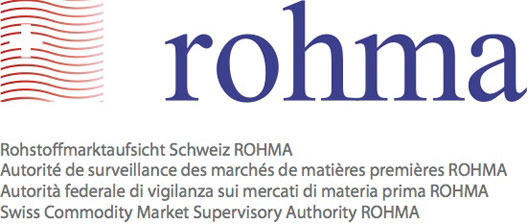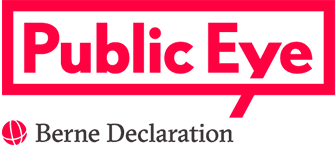Dirty commodities and the measures aimed at keeping them out of trading
Under the Commodities Act, companies active in the commodity sector must know the exact conditions under which the commodities they purchase are extracted, produced or traded. These provisions are aimed at preventing companies, whether intentionally or negligently, “laundering” dirty commodities, and ending up being complicit to crimes that have been committed at an earlier point in the value chain. Dirty commodities can be described as those that have been illegally or illicitly acquired (e.g. through theft or corruption), that have been acquired in violation of human rights standards or that are sold to finance conflict or criminal organisations.
Although since the introduction in the 1990s of the anti-money laundering legislation, financial intermediaries have needed to ensure that no illegal funds enter the legitimate financial system, prior to the entry into force of the Commodities Act and the creation of ROHMA, no legal device was able to prevent dirty commodities from entering the legitimate trading system.
The commodities companies themselves are best able to identify suspicious transactions. For this reason, the CA obliges companies to carry out specific due diligence exercises designed to prevent dirty commodities from entering the legitimate trading system. These due diligence obligations are especially designed, among other things, to ensure the lawful origin of the commodities (supply chain due diligence), the integrity of their business partners (business partners due diligence), or to ensure that none of the commodities in their supply chains come from conflict-affected zones, occupied territories or failed states without explicit authorization from ROHMA. Where companies subject to ROHMA become aware of possible breaches of the ROHMA regime committed by third parties (who are also or should be subject to ROHMA), they are obliged under article 18 CA to communicate their suspicions to ROHMA immediately.
ROHMA oversees the implementation of these due diligence exercises by companies in the commodities sector and punishes breaches. Where a company is found to sell dirty commodities, for which the correct application of due diligence would have revealed a problematic origin, the company will be guilty of "commodity laundering." This criminal offense is defined in the CA.
Politically exposed persons (PEPs)
In accordance with the CA, PEPs are considered to be persons who occupy important public positions abroad: heads of state or government, high-level regional or national politicians, senior officials of the administration, judiciary, military and parties at national or regional level, the highest organs of state enterprises of national importance, companies and people who are close to the above-mentioned persons for family, personal or business reasons.
Proper business conduct
The laws governing the commodities sector require those submitted to them, particularly those in management positions, to offer the assurance of “proper business conduct." This aims to preserve the reputation of the Swiss commodity centre. This guarantee is based on past and present activities of the company and as well as the personal and professional skills that allow a person to maintain proper direction of a submitted company. The main assessment criterion is the behavior of the person in the past, and his work in the past and present with a view to any planned future activity. In general, companies active in the commodity sector must know exactly who their partners are, identifying the beneficial owners of the companies with which they enter into business relationships, and take all necessary measures to ensure proper business conduct.
Resource Curse
The resource curse is a concept describing the situation of commodity producing States who fail, despite the wealth they generate, to extract their people from poverty. Overcoming the resource curse represents an enormous challenge. As the primary host country to commodity trading companies, Switzerland has the responsibility to ensure that such companies do not contribute to the resource curse.
Watch List and Black List
If ROHMA becomes aware that commodity sector legislation has been breached, its first priority is to ensure that the law is enforced and compliance re-established. ROHMA does not initiate administrative proceedings to investigate the extent to which individuals are responsible for irregularities unless there are specific grounds for doing so (e.g. if the person concerned intends taking up a position subject to the requirement for assurance of proper business conduct). If ROHMA sees no specific reason to clarify compliance with this requirement, it will nonetheless collect any evidence of possible malpractice and store it in its Watch List. Such action depends on whether the person involved could apply for an influential management position at institutions under ROHMA supervision.
The purpose of the Watch List is therefore to provide information on individuals who hold influential management positions at companies under ROHMA supervision that must comply with the requirement for assurance of proper business conduct under commodity sector legislation. To this end, only data that is relevant in evaluating compliance with the proper business conduct requirement (e.g. personal details; extracts from the commercial, debt enforcement and bankruptcy registers; sentences passed by civil, criminal and administrative courts; reports made by audit firms and by institutions under ROHMA supervision) is included in the data collection.
Individuals who have committed serious or persistent breaches will be placed on a publicly-available black-list and are prohibited from carrying out any commodity-related activities in or from Switzerland, or from acting as director on any board of any Swiss company for a period of five years.
Transparency of payments
The Commodities Act (CA) stipulates that any company caught by the Act must publish all payments made to governments or public companies of CHF 100,000 or more using the form TRA. Payments are understood to be the acquisitions of licenses, concessions, production sharing agreements, signature bonuses, royalties, taxes, loans, purchases, sales and any other form of transaction.
In addition to the amount of the payment, in the case of a purchase or a sale, companies must also disclose the date of the transaction, the volume and quality of the commodity or product exchanged, and must specify the exact recipient of the payment, by providing data to enable the identification of its destination (account number, bank, beneficial owner, etc.).
Commodity-related activities requiring a license
The types of activities which require a license from ROHMA are set out at article 5 of the Commodities Act. These activities include: mining (incl. surface, sub-surface and in situ leaching), refining, smelting, transporting/logistics, drilling (e.g. for oil), farming, storing of commodities, extraction (e.g. gas), processing, trading in or distributing physical commodities. Before granting a license, ROHMA will look particularly at whether the company has the necessary competence to carry out the activity for which it seeks an authorization, and the requisite internal organization to fulfill its various duties of care. Companies with a license are subject to ongoing supervision by ROHMA.



